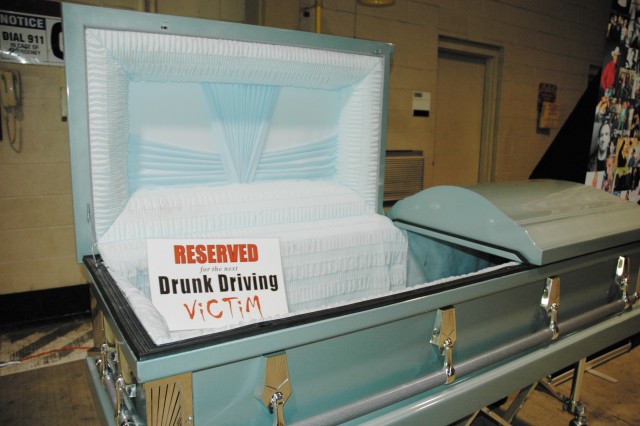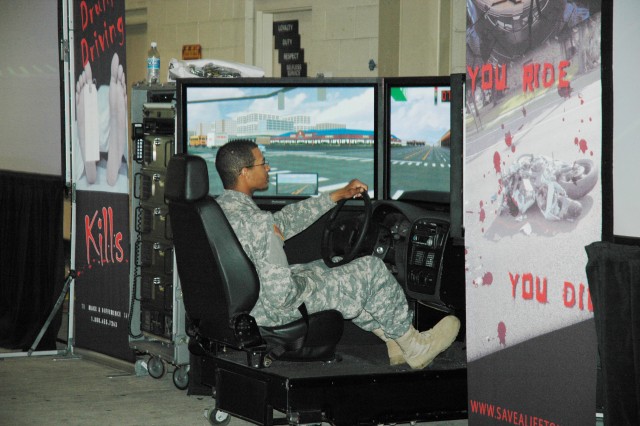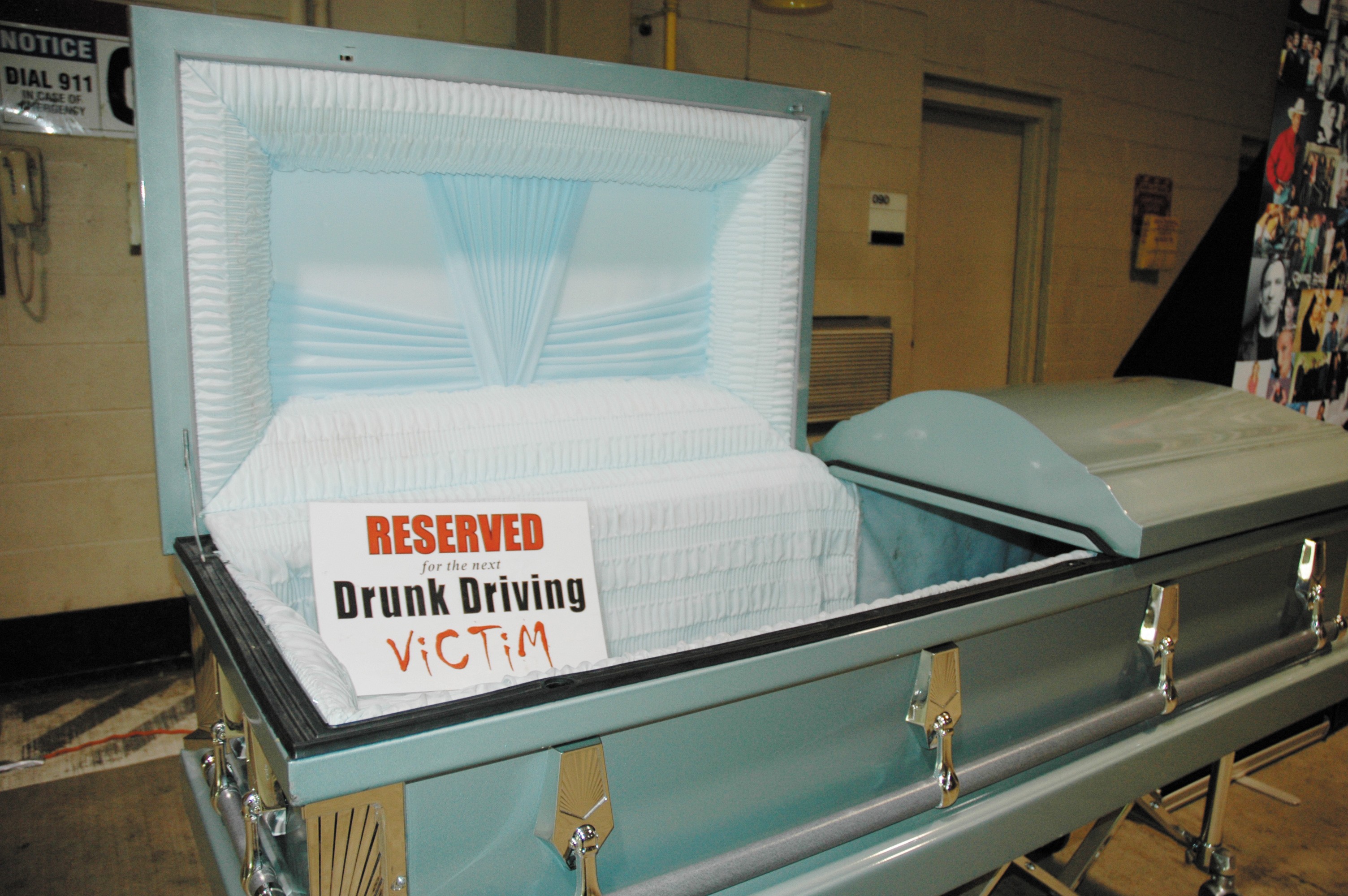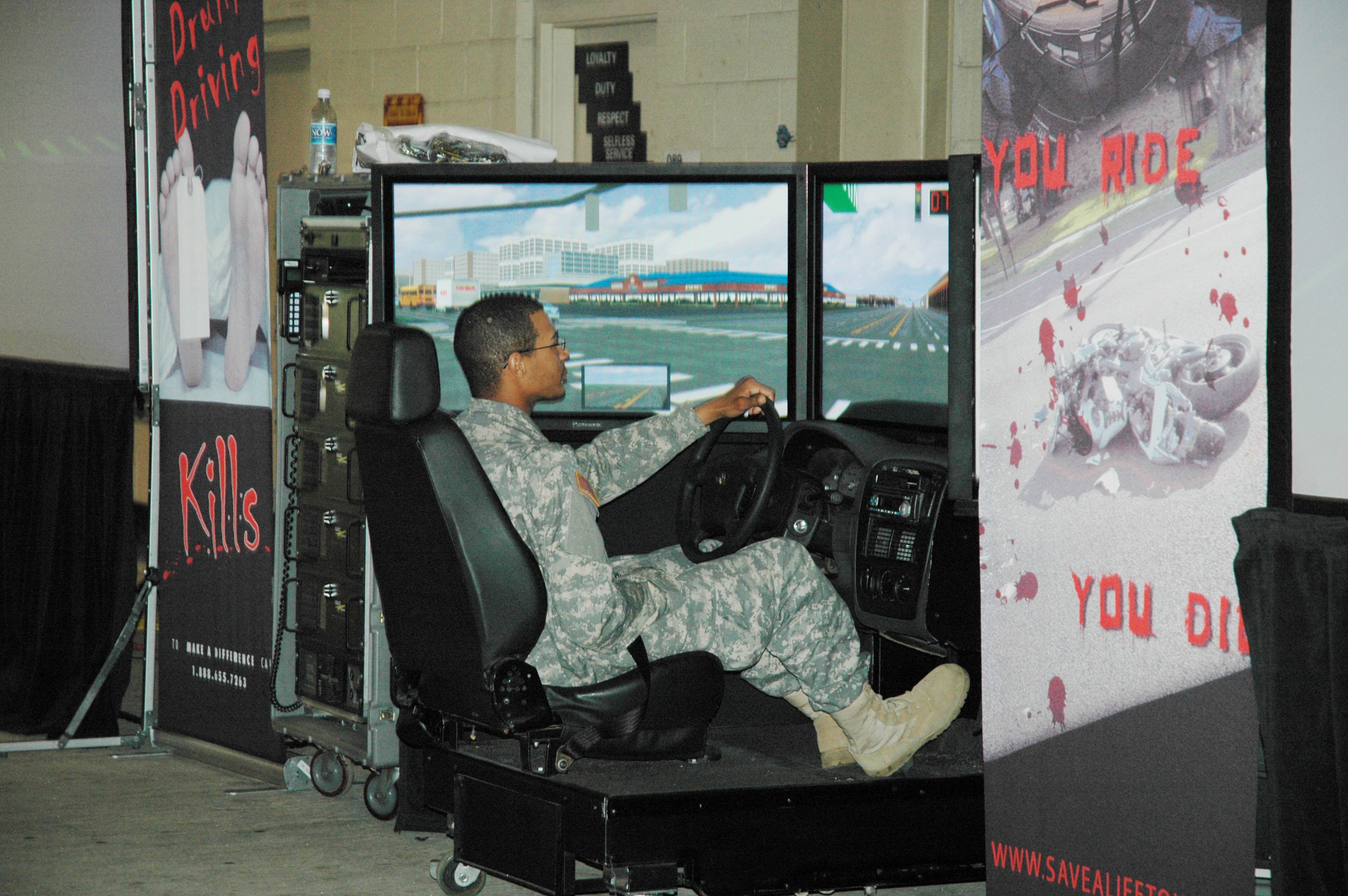Advanced Individual Training Soldiers stationed at Aberdeen Proving Ground were shown that drinking and driving don't mix when the Save a Life Tour came to Downer Hall May 15.
The event was sponsored by the APG Army Substance Abuse Program office to educate Soldiers about the dangers associated with drinking and driving.
The multi-million dollar driving simulator has a split second delay in its monitors to replicate how a vehicle drives when the driver is intoxicated. The simulator also includes some difficult driving situations, and aggressive drivers, to replicate a real-life driving situation. An open casket set aside for the next DUI victim and huge posters with serious messages helps drive home the message.
The event kicked off with a briefing by Cejay Rich and Chris Geysbeck, who work for the Save a Life Tour, that featured a video depicting real-life tragedies.
Save a Life Tour has been to every state in the continental United States with the mission of showing people the consequences of drunk driving.
Geysbeck said that a designated driver should always be established ahead of time, before going to an event with alcohol.
"Auto accidents are the number one cause of death among teens," Geysbeck said. "Many people take drunk driving lightly, but it is a serious thing."
Geysbeck added that it is important to block distractions while behind the wheel. He said that many people let distractions like loud music, text messaging or calling [on cell phones] interfere with their driving, which has also contributed to a high number of accidents.
Geysbeck said that Soldiers have an important calling, and need to keep their mission in mind even when they are "off-duty." He reminded them getting in a drunk-driving accident which results in injury or death will impact their mission.
"You need to make sure you are there for your fellow Soldiers," Geysbeck said.
He added that friends don't let friends drive drunk, so by taking the keys, they do not have an opportunity to take a life.
Private Kristy Crabtree, an AIT student from the 143rd Ordnance Battalion, said that the simulator felt like a real driving situation.
"It felt like driving a real car; it is a good simulation," Crabtree said. "With the drunk-driving simulator you really see how much your reaction time is off when you are intoxicated. I think that it is good that they had this for the Soldiers because sometimes when you have been drinking you don't realize how much the alcohol affects you until it is too late."
Vivian Jackson, an alcohol and drug abuse program technician, and Judith Smith, an installation biochemical testing coordinator, said that they felt like the program was excellent and relevant.
Smith said that young Soldiers are especially considered "at-risk" for drunk driving because they are exposed to new, stressful situations, like facing deployment for the first time.
"Everyone should take drinking and driving seriously and think, how I would live with myself if I wiped out a whole Family," she said.
"I think that this simulation experience will help Soldiers pay attention and make better choices," Smith said. "When you are young, you think that nothing will happen to you. This program shows them that a drunk- driving accident could easily happen to you if you choose to drink and drive, or get in a car with a drunk driver."
Jackson added that even if a drunk driver does not cause an accident, DUIs are very expensive, and having one on your record could adversely affect employment in the future.
For more information on the Save a Life Tour, visit www.savealifetour.com.




Social Sharing